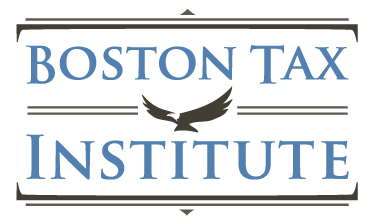I hate having the first thing I hear about a fantastic scheme to be that the IRS is onto it. That is what happened with the “copyrighted non-grantor irrevocable complex discretionary spendthrift trust” which sprinkled tax fairy dust on your assets so that no taxes need be paid on capital gains and other investment income. Justin Miller broke the news for me.
Do so-called “Copyrighted” Non-Grantor Irrevocable Complex Discretionary Spendthrift Trusts really avoid income tax? The IRS just released AM 2023-006 stating NO! Contrary to tax promoter claims, either the trust or beneficiaries will be subject to tax.https://t.co/3FVC3ZFf9b
— Justin Miller (@justinmilleresq) August 18, 2023
He was referring to a memo (AM 2023-006) authored by Holly Porter IRS Associate Chief Counsel (Passthroughs & Special Industries).
Still Going On
Of course the “copyrighted non-grantor irrevocable complex discretionary spendthrift trust” (Let’s call it CNGICDST) is still being promoted. You can check out Dohn Thornton’s You Tube site, where after advising you that he is not giving you tax and accounting advice, he gives you the Code Section that he purports makes this all work.
I wrote to Dohn to get a better sense of the mechanics. Noting from my email that I am a CPA he referred me to one of my brethren. We’ll call them Robin. I didn’t check Robin’s credentials, but they did sound pretty much on the ball. Basically there is a law firm that provides the trust. It takes a month or so to set everything up properly and you have to pay them $30,000 to $40,000. You end up with the trust which you are in control of, somehow. You have an ID number so you can open accounts, etc. And you have a requirement to file Form 1041. Income is reported on Form 1041, but somehow or other thanks to the magical language it does not make its way into the tax computation.
Robin was measured in their endorsement. Robin had all this legal documentation and the lawyers saying it worked, but has never faced an audit, which is kind of the acid test. Robin denied getting a piece of the action on the upfront fee. I asked Robin if they had heard about AM 2023-06. They had and talked to the lawyers. The gist of it I think was that the IRS was probably referring to one of the Brand X imitators and not the real tooting genuine CNGICDST. The people promoting the Monetized Installment Sale told me something similar when I asked them about the IRS attack on that scheme.
Why It Doesn’t Really Work
Dohn in his video points you to the section of the Internal Revenue Code that is being relied on and seems to make a really compelling argument. In Dohn’s presentation the heading indicates Section 643(b), but the killer language he quotes is actually from 643(a)(3).
“(3) Capital gains and losses. Gains from the sale or exchange of capital assets shall be excluded to the extent that such gains are allocated to corpus and are not (A) paid, credited, or required to be distributed to any beneficiary during the taxable year, or (B) paid, permanently set aside, or to be used for the purposes specified in section 642(c).”
There you go. Capital gains are excluded, if your language is right.
The problem is that the language there is not discussing taxable income. It is discussing something called “distributable net income” (DNI). So let’s try to explain DNI to a normal person.
The noun trust is used in a lot of different contexts to identify a variety of arrangements. Sometimes, for example, it is refereeing to a title holding device, which has no independent tax existence. An entity that is a trust for tax purposes has a fiduciary who is managing assets for beneficiaries. The trust is taxed like an individual with a more compressed rate table and different rules about some deductions and exemptions.
The biggest difference between how a trust pays and how an individual pays involves DNI. To the extent a trust distributes or is deemed to have distributed its DNI it gets a distribution deduction. To that extent the beneficiaries are taxed on the income which will be reported to them on a K-1. What does or does not go into DNI is not simply a matter of tax law. It is also dependent on what the trust instrument says and state law. Back in the day it was generally thought that capital gains should stay in the trust and not be distributed. I could spend a long time trying to explain that, but I have thought better of it and will spare you.
The bottom line is that the section cited does not exclude capital gains or anything else from being part of taxable income, because the section is not about defining taxable income. It is about defining DNI, which a couple of steps down the road can affect taxable income.
If you prefer listening you might like Justin Miller’s podcast on the topic. His great line is that DNI is only slightly less complicated than DNA.
Why It Sort Of Works
The audit rate for trust income tax returns is extremely low. And push comes to shove, audits are really the most effective teaching tool that the IRS has. When I first did trust returns in the eighties, we were pretty much doing them wrong a lot of the time. I don’t think my firm was alone in that. We would treat all the trust’s income as DNI, so if there was enough of a distribution the beneficiary would pay tax on all the taxable income. Nobody was getting away with anything really. It was just easier.
What cured us was the unlimited marital deduction which sharply reduced the number of taxable estates. The effect that had was well trained attorney IRS agents with time on their hands who started auditing trusts and explaining the Uniform Principal And Income Act to dopes like me. After that we were pretty meticulous about DNI computations and the trust’s “accounting income”. It did get discouraging though because hardly anybody cared and after that brief spurt of interest the IRS was off fighting crime elsewhere and as time went on hardly doing any audits at all.
So I could see how there would be a lot of practitioners out there who, like Robin, accept the material that the CNGICDST promoters provide. If the IRS has the resources, there is a good chance that they will pry a customer list from the attorneys who have been selling this product and from there it may get ugly.
Other Coverage
Ed Zollars has Promotional Materials for Marketing Trust Based Shelter Erroneously Confuses Various Definitions of Income for Trust Income Taxation on Current Federal Tax Developments. He manages to pack the key idea right in the headline, but then he goes from good to great.
“Promoters of questionable tax schemes often distribute a “legal analysis” to potential victims. While these analyses might sound authoritative, they can sometimes resemble the output of ChatGPT in full hallucination mode. These analyses are typically designed to sound sufficiently authoritative to intimidate any tax professional who isn’t well-versed in the specific area of taxation being addressed.” (Emphasis added)
——————————————————————————————————————————————————————————-
Originally published on Forbes.com.
For great value continuing professional education. I recommend the Boston Tax Institute

You can register on-line or reach them by phone (561) 268-2269 or email vc@bostontaxinstitute.com. Mention Your Tax Matters Partner if you contact them.
For articles oriented toward tax professionals check out Think Outside The Tax Box.
































































































